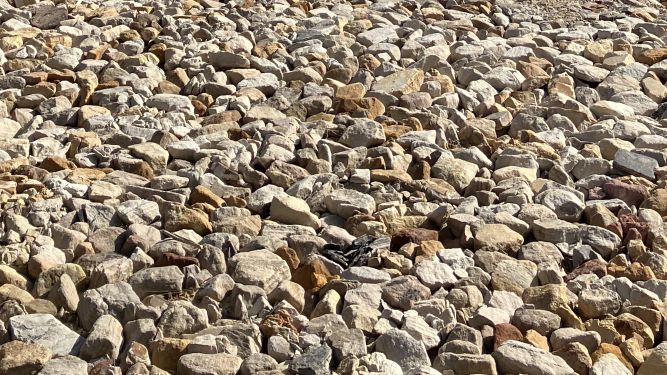Essentialism: The Disciplined Pursuit of Less written by Greg McKeown

Key points in this book
Live a life that really matters.
Art of saying no to non-essentials.
If you don’t prioritise your life, someone else will.
Beware the barrenness of a busy life. Being an Essentialist is living by design, not by default. Focusing on the essentials is a choice, your choice. Less but better. Pause frequently and ask yourself, “What is essential?” “Am I investing in the right activities?”

3 Most impressive ideas in this book
1. Beware the barrenness of a busy life. Being an Essentialist is living by design, not by default.
My reflection:
This concept is also mentioned in the book ‘Die with Zero’. For many people, they live their life by default and repeat the default mode until retirement. Imagine this. At around 22 years old after graduation, they get a 9-5 job for stable income and marry someone under their parents’ expectation. Later on, they kept doing the 9-5 job and striving to get promotions to save more money to raise their family, no matter they love the job or not. To save for a house and buy a fancy car, as many people often do, they work harder and longer for more money. After buying the house, they may have little savings left every month after paying all the bills, such as the house mortgage, car loan, education fee for children and basic cost of living for the whole family. They may be able to go on a family holiday once a year if lucky. After repeating this lifestyle for probably 43 years until reaching their retirement age of 65, they’ve accumulated 40+ years of working experience and a house without mortgage if lucky. However, would they remember much about what really happened within these 40+ years? Yes, they had a satisfying 9-5 job, a family, a family SUV, a house, just like many other people in the society. But, would they regret it if they missed the chance to study or work abroad when young? Would they regret buying house too early so they didn’t have more flexibility to use their money in a better way? Would they regret saying no to the work they were fond for but stayed loyal to their company for more promotions and money? Would they even pause to inspect their lives, rather than simply following the societal flow? As they didn’t design their life, the society did so for them.

2. Saying no. We are looking for our highest level of contribution: the right thing the right way at the right time. Yet the key to making our highest contribution may well be saying no.
My reflection:
Saying no seems like a difficult job, but it brings more control and content to my life. I found it challenging to refuse frequent demand of overtime working hours from my employer when I was a new comer working as a full-time nurse. Almost every day, I received phone calls or text messages from my employer asking if I could work overtime beyond my weekly 38 working hours. The only respite from these relentless demands was during my holidays. Luckily, the managers didn’t waste time calling us on our leave.
In the first few months, I believed that overtime work was simply part of the working culture, so I gave it a try. Many of my colleague nurses also frequently took overtime work, with a few of them working for more than 8 days straight, usually for more than 15 consecutive working hours. Mad! So, I tried it too. However, I could only tolerate it occasionally.
I felt extremely exhausted both physically and mentally after working 15 to 18 consecutive hours, whether from 7:00 am to 22:00 pm, or from 13:30 pm to 07:30 am the next morning. Imagine this: You endure a hectic 8-hour shift with several significant Medical Emergency Team (MET) calls, patient falls and other medical dramas on the ward. Now you have to keep working for another 7 or 10 hours for overtime work because you agreed to it in advance. Do you think you could still function well when another MET call occurs or be as patient with your patients? Um … by my 14th working hour, I would likely find myself speaking straightforwardly to rude patients or family. Fortunately, I didn’t encounter rude people when working overtime.
Due to these common situations arising from overtime work, I began refusing it after a few months. Initially, I felt guilty doing so, but with understanding of my line manager, I stuck to my decision, especially when I didn’t feel safe working long hours on the ward, both for patient safety and my own health. And you know what? This is totally acceptable, and managers would always find someone to address understaffing issues. I needed to prioritise myself and be more considerate to my patients by avoiding overtime work to prevent any potential decline in the quality of nursing care.
I felt more satisfied with my life when I started to work my responsible hours only every week. I had more time look back on my current lifestyle and adjust to a preferable way. I had more time to sleep, to do more exercise, and to make a diet plan. I also had some time to join a squash club in town and enjoy a new sport I’ve always wanted to play. Regular days off from shift work also helped me organise some time to travel to see close friends and make new friends. Regaining control of my life and quality of social life made my life more content.

3. The transition of becoming an Essentialist doesn’t happen overnight. It’s a long process, but the benefits are endless.
My reflection:
Transitioning to an Essentialist mindset is not an overnight change; rather, it is a gradual process that unfolds over time. Embracing Essentialism requires a shift in mindset, habits, and priorities, which requires effort and dedication. However, the rewards of adopting an Essentialist approach to life are boundless. By focusing on what truly matters and eliminating non-essential distractions, you can experience increased clarity, purpose, and fulfilment in your life. Essentialism empowers you to reclaim your time, energy, and attention, allowing you to invest in activities that align with your values and goals. While the journey towards Essentialism may be challenging at times, the benefits of living a more intentional and meaningful life make it well worth the effort.
[…] The previous post supported that being aware of death and the barrenness of the busy life that our culture encourages […]